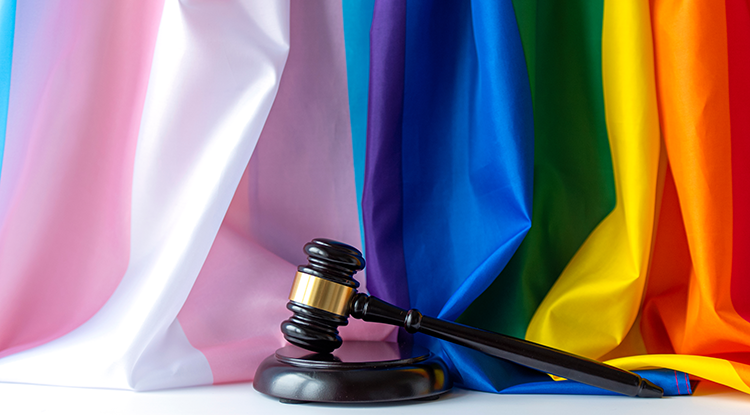6th Circuit refuses to block school's pronoun policy; dissent makes belief-in-ghosts comparison

A federal appeals court has refused to block a school policy banning the misgendering of transgender students. (Image from Shutterstock)
A federal appeals court has refused to block a school policy banning the misgendering of transgender students.
The plaintiff, a group called Parents Defending Education, did not make a clear showing that the policy violates the First Amendment, the 6th U.S. Circuit Court of appeals at Cincinnati ruled Monday in a 2-1 decision.
At issue was a policy adopted by the Olentangy Local School District in suburban Columbus, Ohio, report Courthouse News Service and Reuters.
The school’s policy banned discriminatory harassment and bullying based on protected characteristics that include gender identity. The policy barred intentional and repeated use of nonpreferred pronouns when referring to transgender classmates.
Parents Defending Education had alleged that the policy violated the constitutional rights of students who don’t believe in gender transitioning because of their religious beliefs. The 6th Circuit, however, said students don’t have to use preferred pronouns because they can avoid using any pronouns when referring to transgender classmates.
“Students who do not want to use their transgender classmates’ preferred pronouns may permissibly use no pronouns at all and refer to their classmates using first names,” the appeals court said in the July 29 opinion by Judge Jane B. Stranch.
The plaintiff did not make a clear showing that the policy unconstitutionally compels speech, or that it constitutes unconstitutional viewpoint discrimination, said Stranch, who is an appointee of former President Barack Obama.
In her dissent, Judge Alice M. Batchelder said there was a First Amendment violation, and the majority opinion had created a circuit split.
The majority opinion “requires the speaker to recognize and accept that gender transition is a real thing,” Batchelder said.
The majority “concludes that there is no viewpoint problem here because the district has expressed no view about whether gender transition is good or bad, and the students remain free to discuss or debate it. That is like saying the school has taken no viewpoint on ghosts when it has students debate whether ghosts are good or evil. But the plaintiffs’ point would be that there is no such thing as ghosts.”
The case is Parents Defending Education v. Olentangy Local School District Board of Education.



